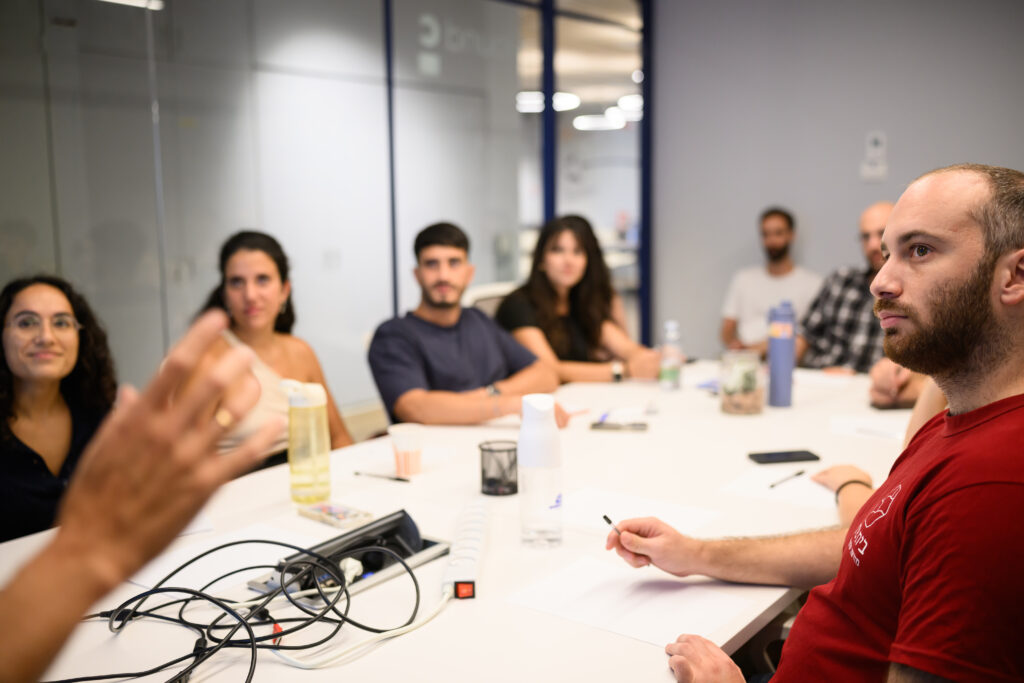
Cutting-Edge Traffic Safety Research in Israel
Cutting-Edge Traffic Safety Research in Israel
April 23, 2010
In Israel, every fatal car accident makes the national news. When four people were killed in an accident in the Negev in March, the entire country was abuzz about the tragedy. A comment posted on a Ynet article reveals the prevailing mindset in Israel: “Is this a ‘cultural’ given and can the ‘culture’ of driving in Israel be significantly altered?”
 David Shinar, the head of Ben-Gurion University’s (BGU) Center for Research in Ergonomics and Safety, has dedicated his entire career to answering this question. For more than 40 years, the focus of his research, both in the United States and in Israel, has been traffic safety and driving behavior.
David Shinar, the head of Ben-Gurion University’s (BGU) Center for Research in Ergonomics and Safety, has dedicated his entire career to answering this question. For more than 40 years, the focus of his research, both in the United States and in Israel, has been traffic safety and driving behavior.
Most Israelis believe that driving fatalities are disproportionately high in Israel compared with other Western countries, Shinar said. “The reality is that more people die in the United States in car crashes than in Israel, proportionally speaking. Statistically, Israel isn’t doing that bad at all.”
The misconception comes from the fact that every crash makes national headlines in Israel, whereas in the United States many aren’t even mentioned in the local news, Shinar explained.
Traffic safety, nevertheless, is a hot topic in both countries, where the push to ban cell phone use while driving has become the new don’t-drink-and-drive campaign. A recent report from the National Safety Council indicates that more than one out of every four traffic accidents — roughly 1.6 million annually — involves a driver talking or texting on a cell phone.
A Distracted Driving Summit, hosted by U.S. Rep. Betsy Markey (D-Colo.), on March 27 at Colorado State University, addressed the dangers of cell phone use and the need for legislation.
California, along with a few other states, banned talking on the phone while driving without a hands-free headset on July 1, 2008, but according to a January Los Angeles Times article, that ban has not reduced the number of accidents in the state.
The study cited in the article, from the Highway Loss Data Institute, points to what Shinar has proven in several studies at BGU’s state-of-the-art driving simulation lab: Cell phone use is equally dangerous whether the phone is used hand-held or hands-free, because the danger comes from the driver being mentally distracted.
“It’s not the hand being tied up that is dangerous,” Shinar said. “Cigarette smokers don’t crash more than nonsmokers. It’s the brain occupation that makes cell phones a huge problem.”
Shinar researches this growing danger, along with many other factors that affect traffic safety, in the most advanced ergonomics complex in the Middle East. The BGU facility, built six months ago, includes a dome facility, a driving simulator — the only one in Israel — and an eye-tracking laboratory, all used to analyze human factors in road safety, in particular the effects of distraction, fatigue, and alcohol and drug impairment on driving.
“In terms of documented research and publication, we’re one of the leading facilities in the world,” Shinar said.
The cutting-edge driving simulator consists of a car on a fixed base — a Cadillac donated by GM — and a full-immersion screen. From the driver’s seat, the edges of the screen aren’t visible, and the driver is fully immersed in the action on-screen. The car’s interior is fitted with an array of interactive gadgets tailored to fit each study conducted by Shinar and BGU students.
Currently, graduate students are researching the effectiveness of public safety campaigns on a driver’s behavior. They plant ads on the car’s radio warning drivers to drive more slowly in areas where children are playing, then observe drivers’ behavior as they move through neighborhoods with schools or playgrounds.
Shinar recently completed a study on cell phone use that indicated an alarming trend: Nothing prevents young drivers from picking up their phones, regardless of the danger of the driving conditions.
Shinar found that young drivers never let a call go unanswered, resulting in a higher rate of accidents, whereas more experienced and older drivers weighed the risks and benefits of answering the phone, often choosing to ignore it for the sake of safety.
“Israelis have the gift of gab,” said Shinar, the chief scientist with Israel’s National Road Safety Authority and a member of the executive board of the International Council on Accidents, Drugs and Traffic Safety. “Israelis own more cell phones per capita than nearly every other Western country. And, overall, there is public ignorance about the dangers of cell phone use while driving.”
A strong movement is afoot in Israel, as in the United States, to educate the public about the dangers of cell phone use and to implement legislation to curb the danger.
Shinar’s research at the BGU lab has been instrumental in inspiring public awareness campaigns and in shaping Israel’s road safety policy, and he has contributed to international research studies on the subject. In April, he will be sitting on the coordinating committee for a study commissioned by the U. S. Congress that will investigate the causes of car accidents.
In his years studying road safety in the United States and Israel, Shinar has discovered many interesting facets of human behavior. While researching the effects of fatigue on drivers, he learned one very effective — and very Israeli — technique to stay awake and focused while on long drives: cracking sunflower seeds.
The quintessential Israeli pastime turned out to be an excellent method of staying alert for long periods of time without compromising a driver’s ability to focus on the road.
“Israeli truck drivers clued me in to this trick,” Shinar said. “I now keep a bag of sunflower seeds in my car.”



